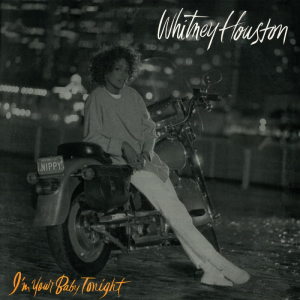
After 7 is an American R&B group founded in 1987 by brothers Melvin and Kevon Edmonds, and their friend Keith Mitchell. The Edmonds brothers are the older siblings of pop/R&B singer-songwriter and record producer Kenneth "Babyface" Edmonds, who named the group and helped them get a record deal with Virgin Records in 1988. After 7 released their platinum-selling self-titled debut album in 1989, which spawned three singles "Heat of the Moment", "Ready or Not" and "Can't Stop". "Ready or Not" and "Can't Stop" were No. 1 R&B hits and top 10 hits on the Billboard Hot 100. Their second album Takin' My Time, released in 1992, also went platinum and contained the R&B hit medley "Baby, I'm for Real/Natural High". After 7's Gold-selling 1995 album Reflections was their last album before the group disbanded in 1997. The album included the R&B hit "'Til You Do Me Right. Years later the group resumed touring with Jason Edmonds, son of Melvin Edmonds, replacing his father. Melvin rejoined the group for their successful 2016 comeback album Timeless, which featured 3 adult R&B top 10 hits "Runnin' Out", "I Want You" and "Let Me Know".

I'm Your Baby Tonight is the third studio album by American singer Whitney Houston. It was released on November 6, 1990, by Arista Records. The album has been certified quadruple platinum in the US by the Recording Industry Association of America (RIAA).

"Exhale (Shoop Shoop)" is a song by American recording artist and actress Whitney Houston, featured on the soundtrack for the film Waiting to Exhale. It was released as the lead single from the soundtrack on November 6, 1995, by Arista Records. The song was written and produced by Babyface. A mid-tempo R&B and soul ballad, composed in the key of D-flat major, the song's lyrics speak about growing up and learning to let go. The song garnered mostly positive reviews from critics, many of whom noted Houston's vocal maturity in the song.

"Saving All My Love for You" is a song written by Michael Masser and Gerry Goffin, originally recorded by Marilyn McCoo and Billy Davis Jr. for their album Marilyn & Billy (1978). American singer Whitney Houston recorded it for her self-titled debut studio album (1985). It was released on August 13, 1985, by Arista Records, as the second single from the album in the United States, and third worldwide. The following article talks about this version.

"Where Do Broken Hearts Go" is a song recorded by American singer Whitney Houston for her second studio album, Whitney (1987). It was released as the fourth single from the album on February 25, 1988. The song was written by Frank Wildhorn and Chuck Jackson and produced by Narada Michael Walden. A pop ballad set in the key of D major, the record is about someone seeking for a former lover to return after a breakup. Upon its release, the song received mixed reviews from critics.

"I'm Your Baby Tonight" is a song by American singer Whitney Houston from her third studio album of the same name (1990). Written and produced by L.A. Reid and Babyface, in Australia and most European countries it was released as the album's lead single by Arista Records on September 28, 1990; in the United States, the release date was October 2. Following the release of her second studio album Whitney (1987), Houston became the first woman ever to debut atop the Billboard 200; despite this, critics deemed it safe and formulaic. Additionally, she was booed at the 1989 Soul Train Music Awards and accused of being "not black enough"; Houston decided she needed to change her sound if she wanted to recapture black audiences.

"All the Man That I Need" is a song written by Dean Pitchford and Michael Gore. The song was first recorded as "All the Man I Need" by Linda Clifford for her album I'll Keep on Loving You (1982). In 1990, American singer Whitney Houston had a number-one multiple chart hit with this song, recorded as "All the Man That I Need", from her third album, I'm Your Baby Tonight (1990).

"My Name Is Not Susan" is a song by American singer and actress Whitney Houston, released as the fourth single from her third album, I'm Your Baby Tonight (1990). The song was released on June 24, 1991, by Arista Records. It was produced by L.A. Reid and Babyface, and written by Eric Foster White. The song is an uptempo new jack swing number in which Houston harshly tells off a lover who has mistakenly called her by his ex-girlfriend's name "Susan". She lets him know that if he cannot get over Susan, then their relationship is over. A remix featuring British rapper Monie Love was also released, becoming one of the first times a pop/R&B artist had included a rapper in a remix, following Janet Jackson's "Alright", which remix featured Heavy D the year previous.

"I Belong to You" is a 1991 song recorded by American singer Whitney Houston for her third studio album, I'm Your Baby Tonight (1990). It was written by Derek Bramble and Franne Golde, produced by Narada Michael Walden, and was released on October 18, 1991, as the album's fifth single by Arista Records. "I Belong to You" was a Top 10 hit on the US Billboard R&B chart, and also charted in the UK and the Netherlands. The song garnered Houston a nomination for Best Female R&B Vocal Performance at the 35th Grammy Awards (1993).

"I Have Nothing" is a song by American singer and actress Whitney Houston, released on February 20, 1993 as the third single from The Bodyguard: Original Soundtrack Album (1992) by Arista Records. The song was written by David Foster and Linda Thompson, and produced by Foster.

"Queen of the Night" is a song co-written and performed by American singer and actress Whitney Houston. It was the fifth and final single released from the soundtrack album The Bodyguard (1992), and is played during the closing credits of the film of the same name. The song was released on October 13, 1993 by Arista Records. It was also written by L.A. Reid, Babyface and Daryl Simmons, and produced by Reid and Babyface.

"You Give Good Love" is the debut solo single by American singer Whitney Houston for her 1985 eponymous debut studio album. It was written by La Forrest 'La La' Cope and produced by Kashif. When La La sent Kashif a copy of the song, originally offered to Roberta Flack, she thought it would be a better fit for Houston and told Arista Records he would be interested in recording with her.

"Love Will Lead You Back" is a song recorded by American singer Taylor Dayne for her second studio album, Can't Fight Fate (1989). Written by Diane Warren and produced by Ric Wake, the song was released on January 12, 1990, by Arista Records as the second single from the album.

"Another Sad Love Song" is a song by American singer-songwriter Toni Braxton. Written and produced by Daryl Simmons and Babyface, featuring additional production from L.A. Reid, it was released as the lead single and its opening track from Braxton's self-titled debut album (1993) on June 11, 1993, by LaFace Records and Arista Records. Lyrically, it talks about Braxton complaining that every song played on the radio is a reminder of her ex-boyfriend.

"You Mean the World to Me" is a song by American singer-songwriter Toni Braxton. It was written and produced by Antonio "L.A." Reid, Kenneth "Babyface" Edmonds, and Daryl Simmons for her self-titled debut album (1993). Selected as the album's fourth single, it was released on CD on April 21, 1994, by LaFace and Arista Records. It peaked at number seven on the US Billboard Hot 100 and number three on the Billboard Hot R&B Singles chart, while reaching the top ten of the Canadian Singles Chart. The music video for "You Mean the World to Me" was directed by Lionel C. Martin.

"Why Does It Hurt So Bad" is a song recorded by American singer and actress Whitney Houston for the 1995 film Waiting to Exhale. It was released on July 22, 1996, by Arista Records as the seventh and final single from the accompanying soundtrack. The song was written and produced solely by Babyface. Musically, it is an R&B ballad, and the lyrics chronicle a lovelorn lament.

"We Didn't Know" is a mid-tempo duet by American recording artists Whitney Houston and Stevie Wonder, and was released as the sixth and final single from Houston's third album I'm Your Baby Tonight (1990). The single was released on April 14, 1992 by Arista Records. Wonder wrote and produced the song. The single peaked at number 20 on Billboard's R&B Singles chart. There was no music video made for the song. This is the first and only single from the album that was issued without a music video.
The following is the discography of American musician Babyface.

American singer Whitney Houston, known as "The Voice", released 57 singles as a leading artist and 4 as a featured artist. One of the best-selling artists of all time, her record sales stood at 220 million. In the United States, Houston amassed 11 Billboard Hot 100 number-one singles, all of whom have been certified either gold, platinum, multi-platinum or diamond by the Recording Industry Association of America and was one of a selected group of artists to have a top ten single in the Billboard Hot 100 in four different decades. She is currently ranked in seventh place of the artists with the most number one singles in the history of the Billboard Hot 100. Prior to the introduction of digital singles, Houston sold 16.5 million physical singles in the country, the most ever by a female recording artist. In October 2012, the Official Charts Company claimed Houston was the fourth biggest-selling female singles artist of all time with a sales total of 8.5 million singles in that country.


















